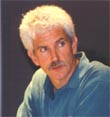Winter 2000
Civic Journalism: Point – Counterpoint
NBC/MSNBC Anchor Brian Williams’ remarks about civic journalism in his keynote address at the Edward R. Murrow Awards ceremony prompted some laughter from the audience. But they prompted a different reaction from broadcasters who are leading the field in the use of civic journalism tools. The Awards dinner was part of the annual Radio-Television News Directors Association convention in October in Charlotte, NC.

Brian Williams warned journalists to stay on the sidelines in reporting. “If you’re part of a collective, it can skew the point of view,” he said. Then he implicated civic journalism in the “skewing” process:
“Civic journalism is an oxymoron. Write about neighborhoods; don’t adopt them or care for them. Report problems; don’t try to solve them. There are other people who have that job.
“Do your own work. Don’t be a cozy civic critic. Your partner, be it a neighborhood, a township, a corporation, a town is likely to become a story some day. What do you do then?”
Two days later, the Pew Center invited journalists on a Pew Center/ RTNDA convention panel, “Tapping Into Your Community,” to respond to Williams. Here are their remarks.

Ramon Escobar, news director, WTVJ-TV, Miami’s NBC affiliate.
“I think Brian has a misunderstanding of what civic journalism is. Civic journalism is not standing up in your newscast and telling people to go recycle. It’s not about telling them to be do-good citizens.
“It’s tackling the problems that continue to face every community and in order to do that, you have to know what the heck is going on in the community. It’s tough to do that when you sit on a national desk in Secaucus (MSNBC headquarters), to get a sense of what’s percolating out in the middle of the communities.
“But it’s a very interesting thing that Brian would have said that because you take a look at NBC Nightly News – what has brought NBC Nightly News back in popularity has been, in my opinion, civic journalism. Its pieces called “In Depth” are civic journalism inspired. They actually try to solve a problem and go very deep into a problem.
“I find (what Brian said) sort of oxymoronic.
“So I think he’s off-base but also I think it [reflects on] those of us who really embrace the concept of civic journalism. I don’t think we’re doing a very good job of explaining to people what the heck it is.
“People think it’s this thing you have to come to a seminar to learn about. You should be practicing it in every way by tackling the tough topics. Great civic journalism looks people in the eye and tells them, sometimes, things they don’t want to hear.
“When Brian says journalism isn’t about solving problems, I’m just wondering what we’re all doing in this business. Our civic journalism is not about getting up and saying, ‘Okay, folks, here’s a laundry list of the solutions we have for you.’ No, it presents the problems and it also presents some people who have some pretty innovative solutions. Sometimes they’re solutions that get people upset.
“One of the things we did in Miami is we tackled the topic – which is a constant problem in our community – of race and ethnicity. It’s not an easy topic to tackle and it was very painful but we tackled it and there were some ideas and there were some solutions suggested but there were perhaps more questions raised than were answered.
“So I’m surprised by what Brian said but I also think we have to do a better job of telling people what civic journalism is so that we don’t have more of those comments by anchors.”

Jon Greenberg, senior editor, New Hampshire Public Radio
“A lot of average people’s dissatisfaction with news is the ivory tower mentality [that Williams evinced]. They think journalists put themselves above situations – and to a large extent they are right. And that, in fact, contributes to people becoming passive.
“So what civic journalism does that’s terribly important is it puts people back into the picture and effectively says, ‘You’ve got the responsibility to solve your problems.’ Perhaps it gives you a venue to participate in the discussion about an issue with the idea that ultimately it comes back to you.
“Now, people are disconnected from solutions. If civic journalism does nothing else, by bringing people back into the picture, it shows that they are part of the solution – not the news organization.”
_____________________________
Epilogue: Last month, Ramon Escobar was named the Executive Producer of MSNBC, responsible for all breaking news coverage and hard news programming except for “The News with Brian Williams,” which is a separate unit.
